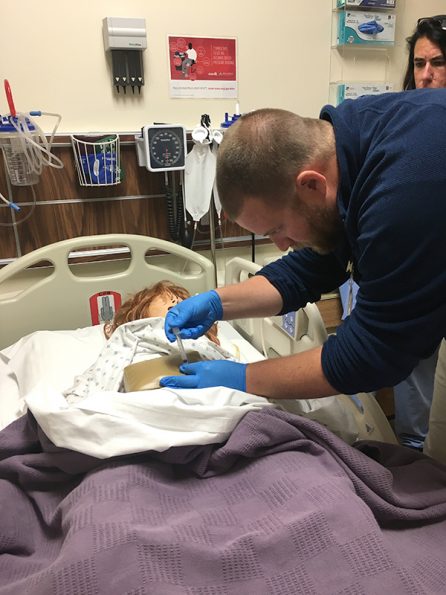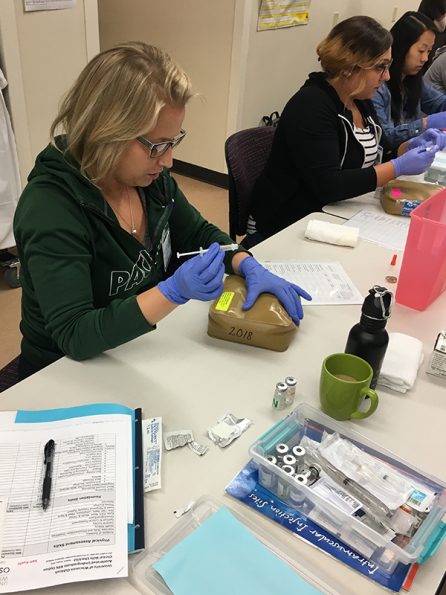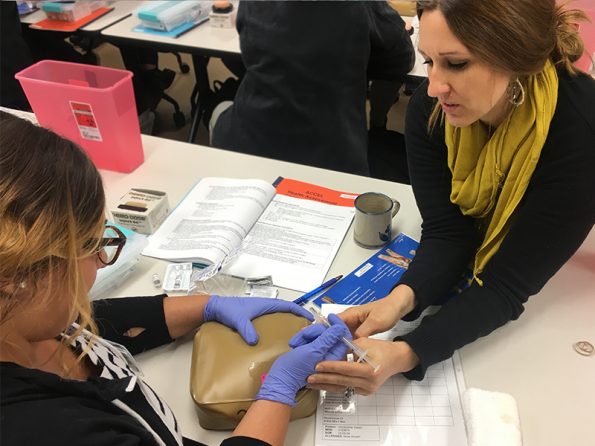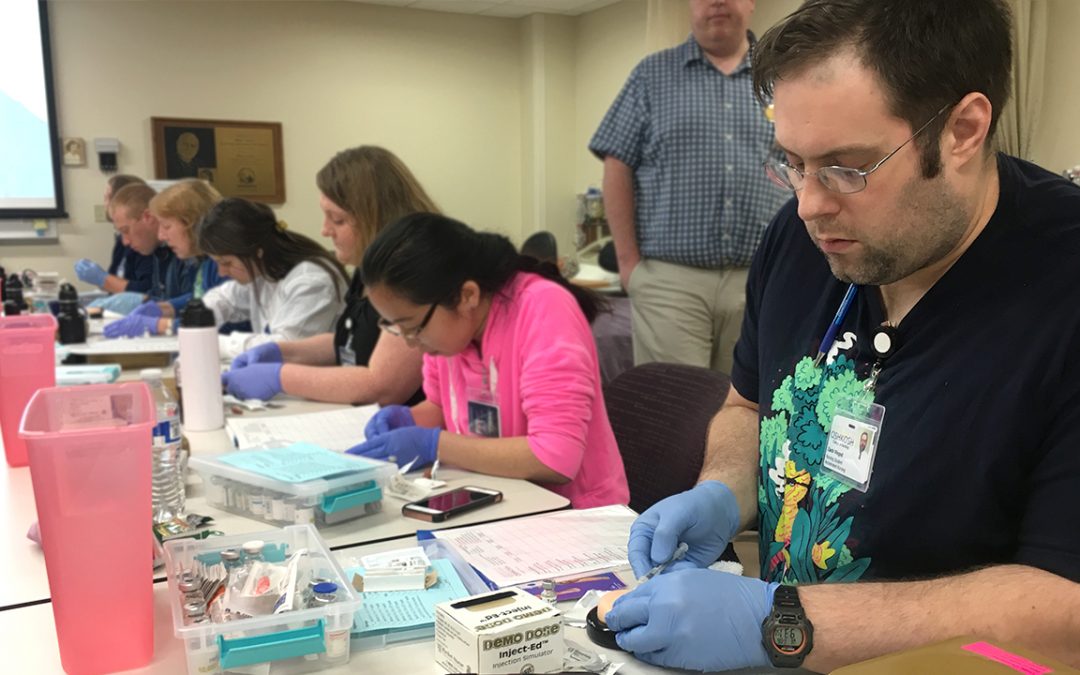On June 4, a group of 30 students arrived at the University of Wisconsin Oshkosh College of Nursing (CON) for an intense, two-week “boot camp,” undertaking simulation lab exercises on campus and clinical rotations at local hospitals. These students aren’t traditional Titans, they are enrolled in the online Accelerated Bachelor’s to BSN program.
The students, though diverse in age and educational background, all came to campus for one reason: to become baccalaureate-prepared nurses.
This Accel cohort launched in February 2018, kicking off with an on-campus orientation. From that point, students returned home to commence intensive online learning modules, discussions and exams.

Between February and June, the students labored over coursework at a rate of one credit per week. June’s “boot camp” is the first tangible milestone after working remotely for three months.
“It’s a lot like a full-time job,” said Matthew Thayer, of Sheboygan. “You wake up and immediately get on the computer for eight to 10 hours each day.”
Thayer pursued UW Oshkosh’s accelerated nursing program because of its flexibility. He appreciates the ability to live in Sheboygan with his wife, while working toward a bachelor of science in nursing (BSN).
Before admission into the program, Thayer worked as a professional fisherman for a sport fishing charter in Sheboygan. He received a bachelor’s in biology from UW-Stevens Point and also has a teaching certification and a captain’s license.
Reflecting on his transformation from the first days of boot camp to the last, Thayer commented that his confidence-level has increased every day he’s been on campus. It’s been an excellent opportunity to put theory into practice.
A common premise among the cohort is having a medical- or science-related bachelor’s degree prior to enrollment. However, liberal arts degrees are not discounted. If prerequisite courses are fulfilled and other admission requirements are met, any individual with a bachelor’s degree can apply to the program.

To be considered for candidacy, students must complete an assortment of general education, psychology and natural science labs and classes. Often, credits from previous baccalaureate studies transfer to fulfill these requirements. In addition to the specific coursework, applicants must have up-to-date nursing assistant certification (CNA).
Experience as a CNA not only gives students a competitive edge in the admissions process, but also provides valuable knowledge pertaining to a nursing career.
Sam Kuehl, of Cumberland, has worked as a CNA and a patient care technician for almost 10 years. She applied to the accelerated nursing program after earning a bachelor’s in biology from UW-La Crosse.
“As a CNA, you learn about basic care and vital signs,” Kuehl explained. “But as a nurse, I’ll gain a better understanding of what vital signs actually mean and what to watch for in patient care.”
The accelerated nursing program imparts a high volume of learning materials at a very fast pace. Kuehl’s experience at boot camp has given affirmation that she is understanding and retaining the curriculum, and she is truly grateful for it.

When researching different universities, UW Oshkosh appealed to Kuehl right away. The CON comes across as supportive, not intimidating, compared to competitor schools. This accelerated option also is one of the shortest in length, and the hybrid format makes it feasible for students from across the state and other parts of the country to participate.
Despite the intensity of the program, CON makes it achievable—asserting that students need to be self-disciplined, while support from faculty is available at every turn.
“Our CON instructors are so inspiring, patient and understanding of our different needs and backgrounds as students, and so knowledgeable and helpful,” Kuehl said. “They are so eager to get to know us and help us through any obstacle we might be facing.”
During business hours, CON faculty follow a policy to reply to accelerated BSN student emails within two hours. At boot camp, the student-faculty ratio is 2:1.
Research shows that baccalaureate-prepared nurses see better patient outcomes than those without four-year degrees. It is part of the CON’s mission to provide students with the knowledge and abilities essential for assuming nursing responsibilities in a variety of settings, as well as develop creativity, engage in lifelong learning and think critically.
Learn more:

